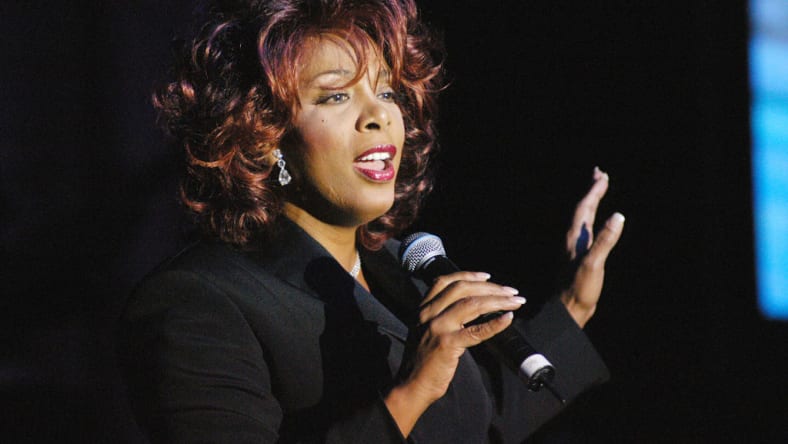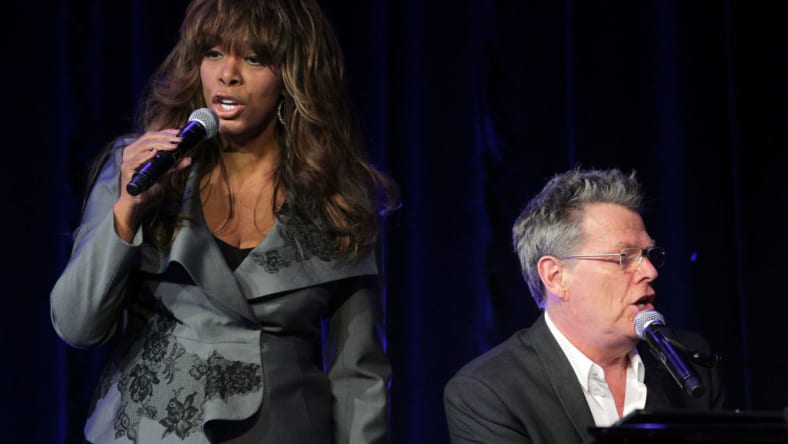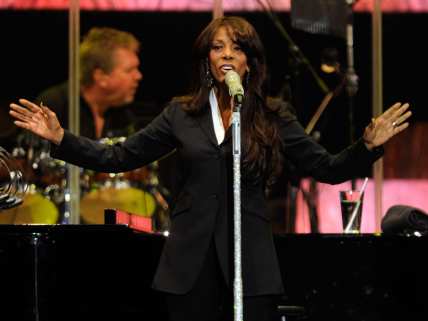Donna Summer documentary unveils who Queen of Disco truly was
Review: "Love to Love You, Donna Summer," premiering on HBO Max on Saturday, uncovers the career of the late singer-songwriter and her life outside of her fame.
Editor’s note: The following article is an op-ed and the views expressed are the author’s own. Read more opinions on theGrio.
Donna Summer, the Queen of Disco.
After viewing the documentary “Love to Love You, Donna Summer,” the truth is she was more of a queen of cinema.
Summer had a “love-hate relationship” with the infamous moniker that linked her to popular music genre of the 1970s, according to sister Mary Ann, one of the voices in the HBO Max documentary premiering on Saturday. The crooner was proud to be “queen of anything,” but the film unveils that her public persona was a character. It was more of a costume that she put on than a reflection of her true self.
With Summer’s daughter Brooklyn Sudano as co-director, the documentary is a revealing and an intimate look into the many sides of her superstar mom. It’s a loving tribute to a woman who tried to be all things to her fans and family, all while exposing her inner turmoil since childhood.

“I’m trying to figure out the many pieces of who mom was,” Sudan said in the film. “She was complicated.”
The complication is examined in great, unfiltered detail, as Summer says in the movie, “I have a secret life.”
This life was not wild and uninhibited, however. Her persona as Queen of Disco was the fantastical alter ego, while the Donna Summer behind closed doors was silly, simple, curious and internally tortured.
“Love To Love You” is told chiefly through narration via Summer’s past interviews and testimonials from those who knew her — mostly her children and siblings. It’s thrilling to see so much rare footage of Summer unearthed for this film, giving the audience more profound insight into just how multi-faceted she was.
The film begins with an extreme close-up of Summer’s eyes, wandering with wonder, as her breakout single full of hedonistic moans, “Love to Love You, Baby,” plays in the background. It’s the perfect place to start this film because it’s such a compelling contrast of what the viewer is about to see: two women occupying the same body.
Summer, raised by Christian parents and influenced by Mahalia Jackson, never meant “Love to Love You, Baby” to be what it was. She said it was just a concept she wrote for another songwriter to develop and pass on to another artist. She was shocked at the audience’s reaction to this sexually explicit track, initially dubbed “sex rock” before it was disco.
From there, we learn who Summer was before the fame: her upbringing in Boston, her moving to New York and being cast in “Hair,” her coming of age in Germany when “Hair” traveled to Europe.
One of the genuinely intriguing parts of the film is when she becomes a mother after giving birth to her first daughter, Mimi, with her first husband. Still feeling youthful and ambitious, she gets divorced, and Mimi goes on to be raised by Summer’s parents back in Boston. Throughout the rest of the film, Summer’s feelings of guilt from being away from her daughter gradually unravel in a brilliantly paced way.

Summer’s relationships with men also play a big part in the film. After divorcing her first husband, she became entangled in a physically abusive relationship with a man named Peter Mühldorfer, who was threatened by her success. Summer’s saving grace came when she met her future husband, Bruce Sudano. This encounter swiftly went from a musical collaboration to a secret love affair until Peter was out of the picture after a beating put her in the hospital.
The film explores Summer’s confession that a pastor sexually abused her as a child, and she and her family unpack how that affected her and her relationships with men going forward. This context makes her professional partnership with producer Giorgio Moroder all the more critical.
Summer said in the film that Moroder was a “redeeming factor” regarding the men in her life. He was one of the only men she knew that earned and kept her trust. Together, they made history, crafting innovative dance music like “I Feel Love,” “Last Dance,” “Bad Girls,” “Hot Stuff” and more.
The music, however, never takes a backseat to the personal story. We get insight into Summer’s approach to recording. She described her style to be more like acting than singing. This isn’t just because she’s singing and performing with a persona unlike her natural side, but also because of her affinity to tell stories with her music.
Summer had a fantastic knack for executing deftly conceptual music landscapes, whether in an entire album, such as “Once Upon a Time,” or in the form of songs, like “Bad Girls” and “Dim All the Lights.” The viewer will feel newfound respect for Summer as a songwriter, arranger, and producer. And the concert footage, starting with a rare clip of her singing in “Hair” as a teenager to 1999’s Live and More Encore” on VH1, shows that the older she got, the better her voice became.
“Love to You Love, Donna Summer” is a beautiful window into one of the most important Black singers of the 20th century.

Matthew Allen is an entertainment writer of music and culture for theGrio. He is an award-winning music journalist, TV producer and director based in Brooklyn, NY. He’s interviewed the likes of Quincy Jones, Jill Scott, Smokey Robinson and more for publications such as Ebony, Jet, The Root, Village Voice, Wax Poetics, Revive Music, Okayplayer, and Soulhead. His video work can be seen on PBS/All Arts, Brooklyn Free Speech TV and BRIC TV.
TheGrio is FREE on your TV via Apple TV, Amazon Fire, Roku, and Android TV. Please download theGrio mobile apps today!


